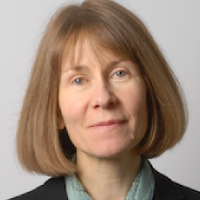Proliferation of weapons of mass destruction. Terrorism. Populism. A newly emboldened Russia.
US equity markets have sustained a significant portion of their post-election gains, despite the headlines speculating over possible Russian interference in the US presidential election, North Korean missile launches and a multitude of other potentially alarming events.
Such market insouciance is not particularly unusual. Since World War II, the US benchmark S&P 500 has fallen by an average 3.5 per cent in response to shocks ranging from the Cuban missile crisis to the 2014 Crimean conflict. It has also typically regained its pre-shock levels within an average of five days.
Financial markets are certainly calmer than they would be without central banks’ liquidity. In general, the knowledge that strong institutions like central banks will intervene in times of crisis (such as rate cuts in the wake of the 9/11 terrorist attacks) comforts investors.
The energy market may be playing a part, too. Oil prices, once a key means of transmitting shocks between markets and economies, are now far less sensitive to events in the Middle East and other oil-producing countries and regions.
The shale revolution has transformed global oil markets in the past decade, reversing a long decline in US output, challenging OPEC’s influence and helping to trigger the sharp drop in prices that began in 2014.
But there are political risks worth dwelling on in 2018. The current pick-up in global growth may not continue. Nor would it be guaranteed to insulate investors from political and geopolitical shocks.
The recent global rebound still falls short of the sort of robust, inclusive recovery that might defuse some of the tensions underlying rising populism.
The rise of populism
The forces behind populism have been many years in the making and may take as long to overcome. In previous decades, broadly centrist governments responded in similar ways to economic and political events. But the rise of populism appears to have broken this consensus.
Populist governments tend to have narrower, nationalist interests that are not well served through international co-operation. In this environment, institutions such as the G20, tasked with finding international solutions to international problems, will struggle.
This is a concern in calm global conditions – even more so if events take a more troubling turn.
Questioning central banks
Other institutional frameworks could be tested in 2018. Central banks may have helped calm markets, but they now face a crisis of confidence. With inflationary pressures far weaker than predicted, markets are questioning whether central banks still have a handle on how their economies work or how to respond to shocks.
If the removal of extraordinary policies does unsettle financial markets, central banks may not be able to rely on politicians to back them. Populists such as President Trump could find central banks a convenient political scapegoat during any shock.
The danger is that institutional credibility is undermined just when it is needed most.
Don’t ignore familiar risks
Even apparently familiar risks need to be monitored closely. Events with a capacity for repetition, such as North Korea’s missile tests or Israeli-Palestinian tensions, can have a diminishing impact on financial markets over time.
A shock feels less like a shock when it is a familiar one. Investors tend to give a metaphorical shrug. But repeat events may be symptoms of a bigger shock to come.
The rational response to these risks is to keep a calm head. After all, investors may appear sanguine because they are simply looking beyond short-term ‘noise’, focusing instead on the fundamental strengths of economies or companies.
This makes sense. Adjusting portfolios to address a particular risk can be costly, and it can potentially undermine longer-term investment strategies.
Against a backdrop of global recovery and capital continuing to flow relatively freely, the economic fundamentals arguably should carry greater sustained weight than political risks. Politics is not the be all and end all, but expect it to have a big bearing in 2018.
Lucy O’Carroll is the chief economist at Aberdeen Standard Investments.






